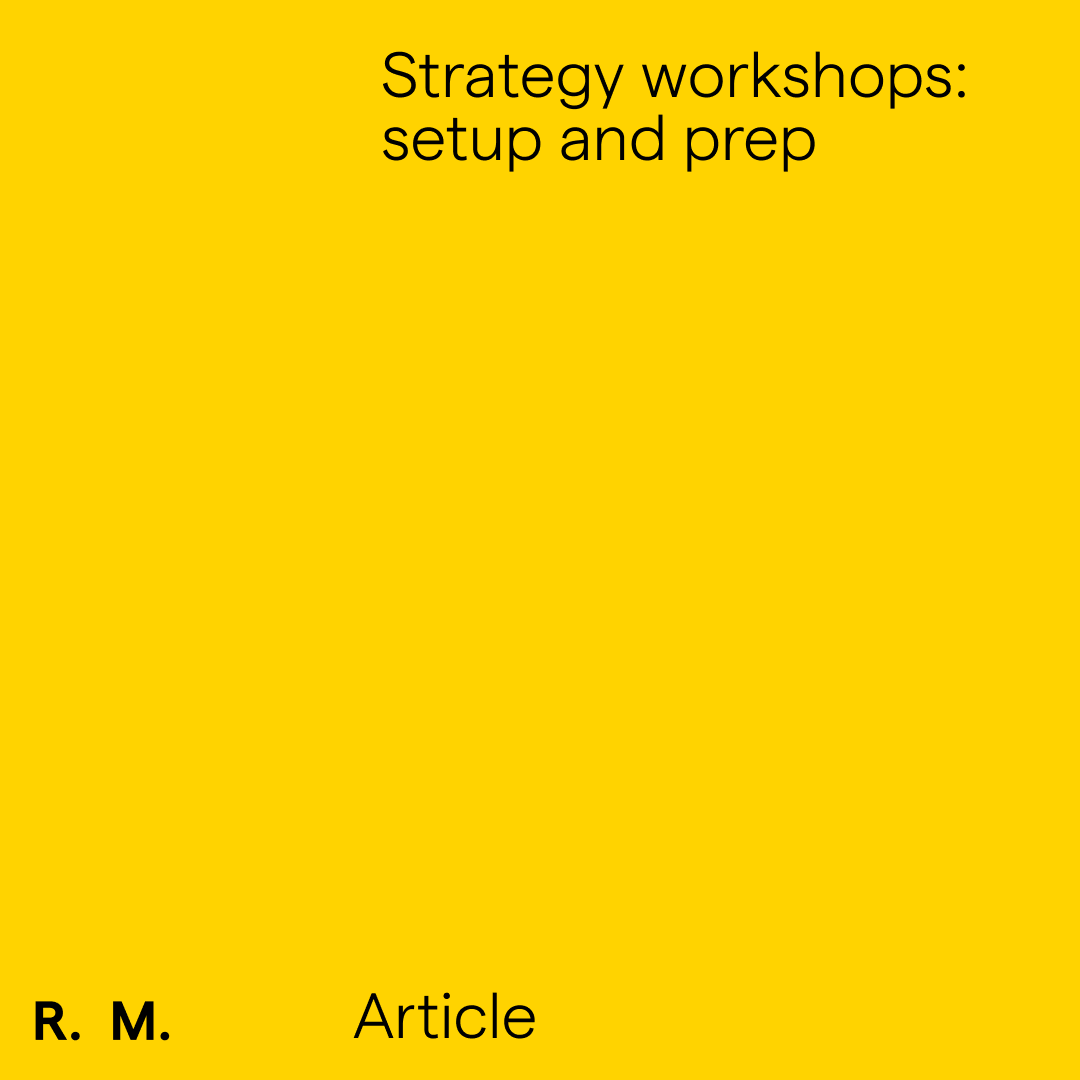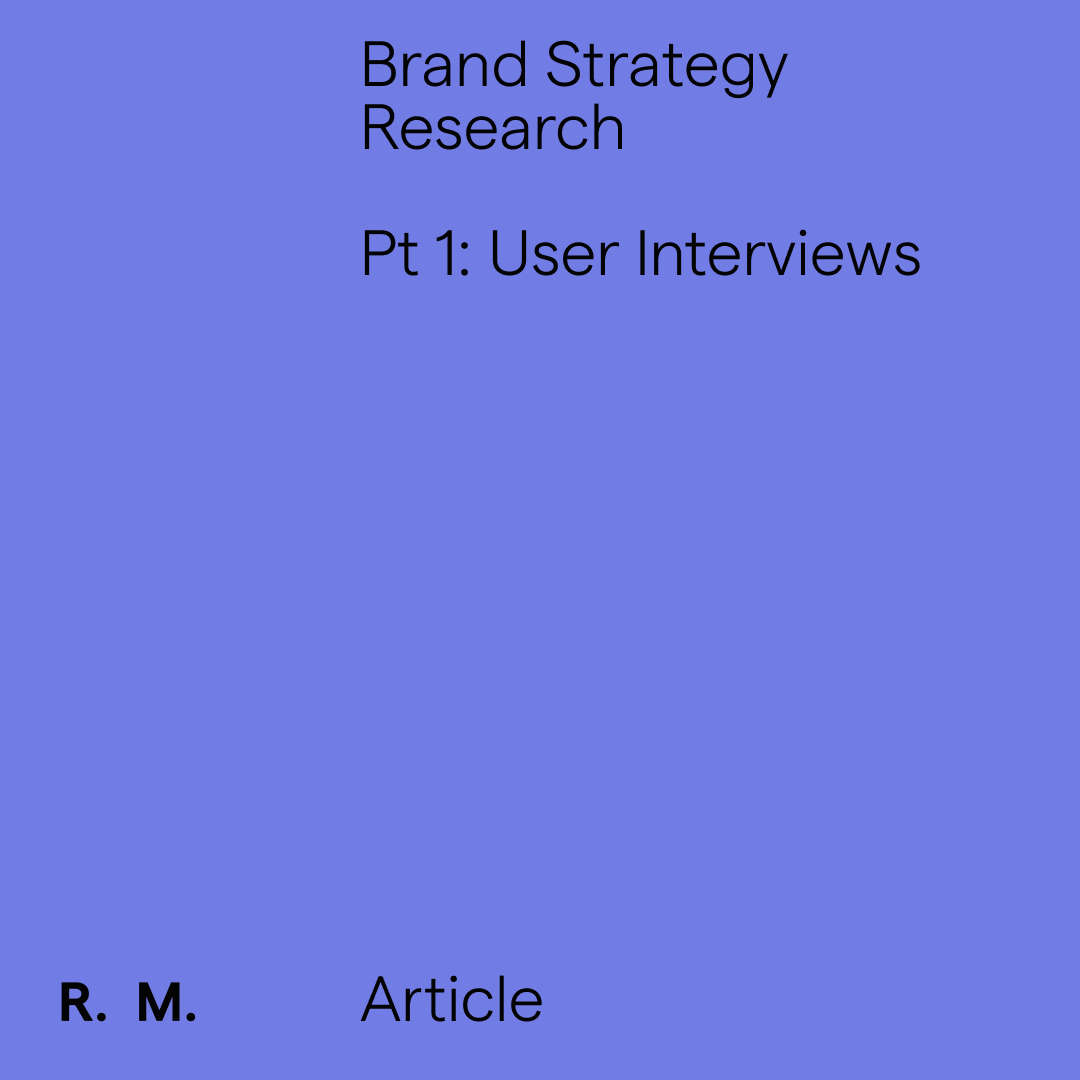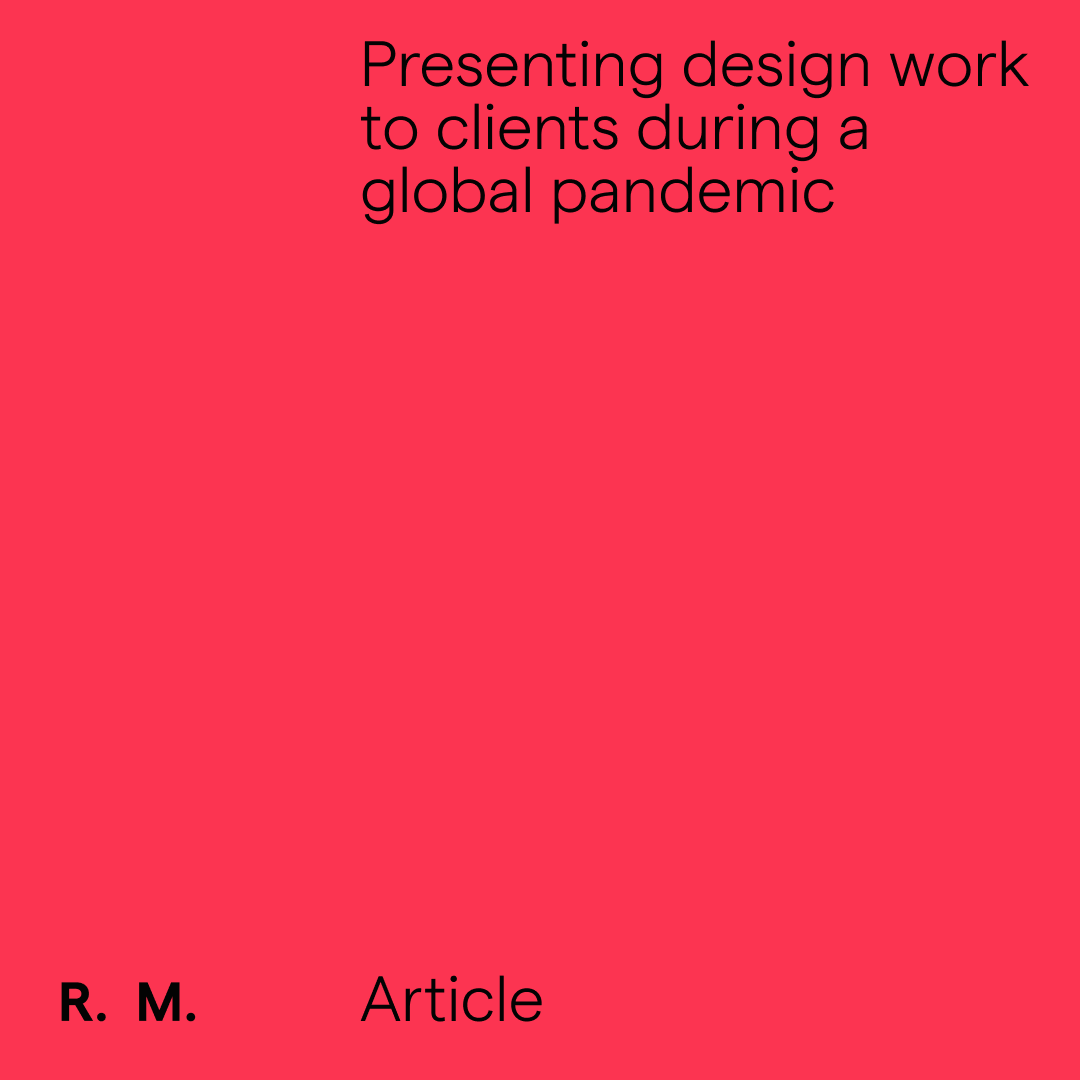Strategy workshops:
setup and prep.
Strategy workshops: setup & prep
Strategy workshops:
setup & prep.
Strategy workshops: setup & prep
By Richie Meldrum
A successful workshop can do wonders for your strategy project. Whether you’re working in brand, digital, business or something else, the strategy workshop forms a critical part of your research.
It’s a rare opportunity to get the people closest to the project in a room and dedicate time to tackling a wide range of questions, issues, ideas and more. The answers and insights you uncover often play a huge part in where you go next and the final outcomes you achieve.
Here’s 10 pointers I always follow when preparing / setting up a strategy workshop.
1. Pick the right space
You’re going to be asking some hard qs in this strat session, so you need a space conducive to creative and critical thinking. Don’t do it huddled round someone's desk, or in a cupboard or something. Pick a nice, light, comfy well-ventilated space with enough room to move about a bit.
2. Do it in the morning.
Much better to do it in the morning rather than the afternoon. You need everyone to have maximum brain capacity and will power to be there. Both of these dwindle as the day goes on, esp after lunch when they are still digesting a footlong sub and thinking about what they’ll watch on Netflix that night.
3. Four hours max
I always keep each session to four hours. After that, people start getting tired, losing interest and switching off. If you need longer, run more sessions.
4. Eight people max
Any more and one of two things tends to happen. Either there are too many people and too many voices vying to be heard or you get what’s called the ‘bystander effect’ where people feel there are enough bodies in the room for them to sit back, not get involved and let the others do the talking. If you need more people, run more sessions.
5. Regular Breaks
These sessions are hard work. Reward your attendees with regular breaks for bathroom visits, refreshments, leg stretching and tech checking. It keeps people focused and energy levels up when you reconvene. I do them every 25 mins or so.
6. Catering
Always a good idea to keep energy and brain levels up by keeping attendees well fed and watered. Make sure there is a selection of drinks, snacks and treats for people. Coffee is a must for some folk so take an order early on. Then go for fruits, nuts, sweets, pastries - whatever you like.
7. Intro Presentation
You might get a person attending your workshop that accepted the invitation without really looking into what the event was. So, before we start, for their benefit, and to get everyone on the same page, I always like to give a little intro into what it is we will be doing, and why we’re doing it. Gets everyone nodding before you get into it.
8. Ground Rules
This was something I learned during my time at August where we’d go through a list of ground rules before every client workshop session. Some of them were designed to encourage contribution, or to maintain momentum, but the one I like the most was ‘No Tech’. Research shows that having someone on their phone in a group session, not only makes them less attentive, but it also drops the attention levels of the entire room. At the start of the session, just request that all mobiles, laptops etc are put away and, if anyone needs to take a call, they are welcome to excuse themselves.
9. Take photos.
Another one I learned at August. There’s so much that gets said during a workshop session, often recalling it all is hard. Photos of the session showing the people, the activities, the food, the setting etc - can be dropped into playback docs alongside written content, to act as a visual trigger. Being able to see the photos helps people recall the event with more ease and therefore what happened - pretty useful if you are trying to get alignment and agreement about what went on.
10. Next Steps
At the end of the sesison, thank everyone for coming and tell them what will happen next:
Eg "We will now be adding the output of this session to the other research we have been doing in order to create the strategy framework which we will be presenting back to the team on 22nd July."
It means people leave the session knowing what they have contributed and what it means for the project.
So, that’s it, 10 things I do whenever I run a strategy workshop that make it go that little bit better. Let me know if there’s any you do, that I’m missing.
Cheers
Richie
A successful workshop can do wonders for your strategy project. Whether you’re working in brand, digital, business or something else, the strategy workshop forms a critical part of your research.
It’s a rare opportunity to get the people closest to the project in a room and dedicate time to tackling a wide range of questions, issues, ideas and more. The answers and insights you uncover often play a huge part in where you go next and the final outcomes you achieve.
Here’s 10 pointers I alway follow when preparing / setting up a strategy workshop.
1. Pick the right space
You’re going to be asking some hard qs in this strat session, so you need a space conducive to creative and critical thinking. Don’t do it huddled round someone's desk, or in a cupboard or something. Pick a nice, light, comfy well-ventilated space with enough room to move about a bit.
2. Do it in the morning.
Much better to do it in the morning rather than the afternoon. You need everyone to have maximum brain capacity and will power to be there. Both of these dwindle as the day goes on, esp after lunch when they are still digesting a footlong sub and thinking about what they’ll watch on Netflix that night.
3. Four hours max
I always keep each session to four hours. After that, people start getting tired, losing interest and switching off. If you need longer, run more sessions.
4. Eight people max
Any more and one of two things tends to happen. Either there are too many people and too many voices vying to be heard or you get what’s called the ‘bystander effect’ where people feel there are enough bodies in the room that they can sit back, not get involved and let the others do the talking. If you need more people, run more sessions.
5. Regular Breaks
These sessions are hard work. Reward your attendees with regular breaks for bathroom visits, refreshments, leg stretching and tech checking. It keeps people focused and energy levels up when you reconveen. I do them every 25 mins or so.
6. Catering
Always a good idea to keep energy and brain levels up by keeping attendees well fed and watered. Make sure there is a selection of drinks, snacks and treats for people. Coffee is a must for some folk so take an order early on. Then go for fruits, nuts, sweets, pastries - whatever you like.
7. Intro Presentation
You might get a person attending your workshop that accepted the invitation without really looking into what the event was. So, before we start, for their benefit, and to get everyone on the same page, I always like to give a little intro into what it is we will be doing, and why we’re doing it. Gets everyone nodding before you get into it.
8. Ground Rules
This was something I learned during my time at August where we’d go through a list of ground rules before every client workshop session. Some of them were designed to encourage contribution, or to maintain momentum, but the one I like the most was ‘No Tech’. Research shows that having someone on their phone in a group session, not only makes them less attentive, but it also drops the attention levels of the entire room. At the start of the session, just request that all mobiles, laptops etc are put away and, if anyone needs to take a call, they are welcome to excuse themselves.
9. Take photos.
Finally, another one I learned at August. There’s so much that gets said during a workshop session, often recalling it all is hard. Photos of the session showing the people, the activities, the food, the setting etc - can be dropped into playback docs alongside written content, to act as a visual trigger. Being able to see the photos helps people recall the event with more ease and therefore what happened - pretty useful if you are trying to get alignment and agreement about what went on.
10. Next Steps
At the end of the sesison, thank everyone for coming and tell them what will happen next:
Eg "We will now be adding the output of this session to the other research we have been doing in order to create the strategy framework which we will be presenting back to the team on 22nd July."
It means people leave the session knowing what they have contributed and what it means for the project.
So, that’s it, 10 things I do whenever I run a strategy workshop that make it go that little bit better. Let me know if there’s any you do, that I’m missing.
Cheers
Richie
Sign up for blog posts, news, workshop freebies and other little titbits. No spam guarantee.
Sign up for blog posts, news, workshop freebies and other little titbits. No spam guarantee.
Sign up for blog posts, news, workshop freebies and other little titbits. No spam guarantee.
Sign up for blog posts, news, workshop freebies and other little titbits.
No spam guarantee.
mail@richiemeldrum.com.au
+61-431-810-751
mail@richiemeldrum.com.au
+61-431-810-751
mail@richiemeldrum.com.au
+61-431-810-751
Twitter
Medium
Twitter
Medium
Twitter
Medium
Instagram
LinkedIn
Instagram
LinkedIn
Instagram
LinkedIn
© 2019 Richie Meldrum.
All rights reserved.
© 2019 Richie Meldrum.
All rights reserved.
© 2019 Richie Meldrum.
All rights reserved.
© 2019 Richie Meldrum.
All rights reserved.
© 2019 Richie Meldrum.
All rights reserved.



